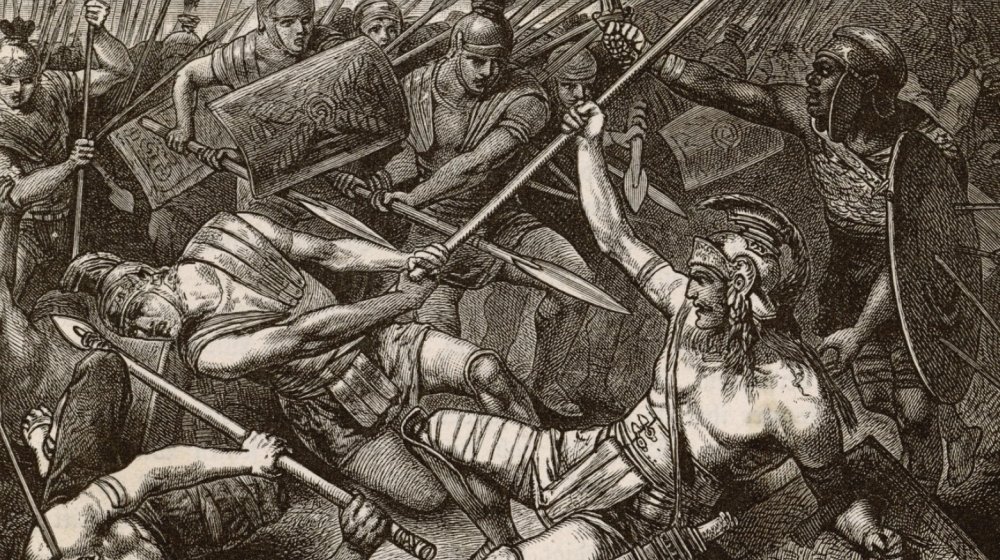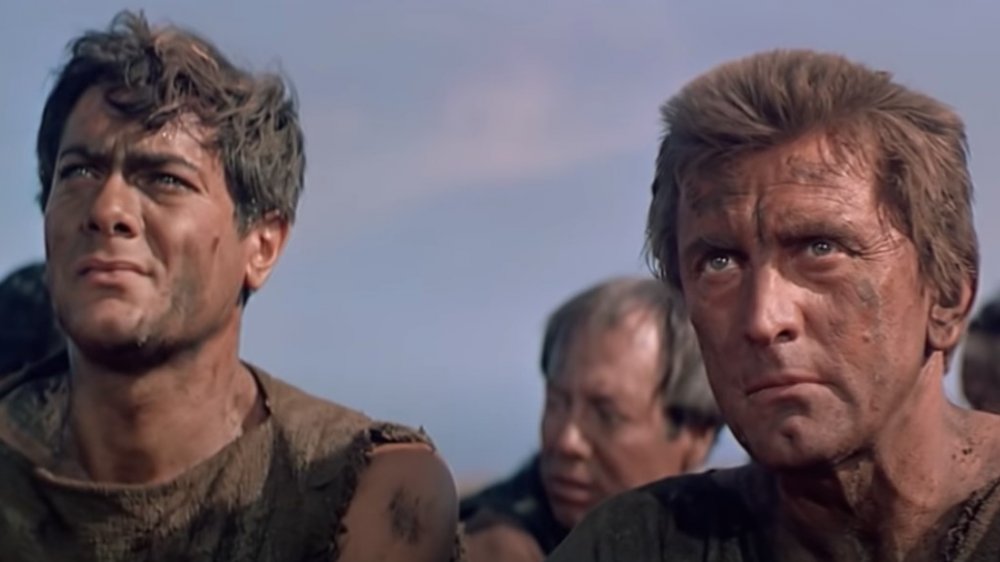The Real Reason Spartacus Fought The Roman Empire
The name Spartacus is evocative, depending on your generation, either of salty premium cable violence or Kirk Douglas's all-consuming Marianas chin dimple. But what do we really know about him? Aside from the fact that recent Gallup polls show that nine out of ten escaped Roman slaves are/am him?
There is surprisingly little to know about Spartacus. We know that he existed loudly and anti-authoritatively at a time when that wasn't a great tactic for living past Tuesday, but we can't be sure where he came from or how old he was when he met his exceedingly perforated end. Most accounts agree that he was Thracian, a member of a wide-ranging group of roughly 50 subdivided tribes located in what's now Bulgaria, Greece, and Turkey, , according to LiveScience. Taken prisoner by Roman forces, he was trained as a gladiator after having served as a mercenary soldier either for or against Rome. It really can't be overstated just how murky the details are here — even when historians base their writings on the same accounts, their translations of those accounts differ tremendously.
What is known is that in 73 BC, Spartacus and a group of between 30 and 80 fellow slaves made their escape, using kitchen tools and gladiatorial equipment to slaughter their captors and head for an as-of-yet-unexploded Mount Vesuvius. Roman officials were apparently unconcerned, treating a slave revolt as less of a threat to the Republic and more of a quirky small town news story.
Spar for the course
The Romans sent a small, cobbled together force to deal with the escapees. Rather than attack them head on, the troops blocked Spartacus' way down the mountain, hoping to starve his group out. Instead, they wound up with egg on their faces when the escaped slaves scaled the side of the peak, catching them unawares and slaughtering just about all of them. News of Spartacus' success spread, and the ball got rolling: by the Spring of 72 BC, it's estimated that Spartacus had as many as 40,000 troops behind him, and they'd torn through highly thought out Roman opposition with what appeared to be nothing more than a double scoop of being badass. What started as an adorable little slave uprising became known as the Third Servile War, ultimately changing the course of human history.
And here's the crazy thing: we still don't know what his plan was. Some historians theorize that he just wanted to go home, but that doesn't jive with his movements. Others think that he was trying to return his followers to their homes, but again, his travel plan doesn't back this up.
In the end, it turns out that Spartacus may not have had an endgame. One of the most iconic names in military history might have been doing exactly what the rest of us do in the face of insurmountable odds: just trying to make it to Friday without any real retirement plan.
And then he got stabbed a lot and died by a guy named Marcus Licinius Crassus. Some weeks are harder than others.

